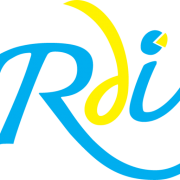การพัฒนารูปแบบการจัดการเรียนรู้เพื่อส่งเสริมผลสัมฤทธิ์ทางการเรียน และความสามารถในการคิดวิเคราะห์สำหรับนักศึกษาระดับปริญญาตรี มหาวิทยาลัยราชภัฏธนบุรี
คำสำคัญ:
รูปแบบการจัดการเรียนรู้, การคิดวิเคราะห์บทคัดย่อ
การวิจัยครั้งนี้มีวัตถุประสงค์เพื่อพัฒนาและศึกษาประสิทธิผลรูปแบบการจัดการเรียนรู้เพื่อส่งเสริมผลสัมฤทธิ์ทางการเรียนและความสามารถในการคิดวิเคราะห์ สำหรับนักศึกษาระดับปริญญาตรี ดำเนินการโดยใช้กระบวนการวิจัยและพัฒนา แบ่งเป็น 4 ขั้นตอน ดังนี้ 1) ศึกษาข้อมูล แนวคิด ทฤษฎีจากเอกสารและงานวิจัย 2) พัฒนารูปแบบการจัดการเรียนรู้ 3) นำรูปแบบการจัดการเรียนรู้ไปใช้ และ4) ประเมินประสิทธิผลของรูปแบบการจัดการเรียนรู้ ใช้แบบแผนการทดลอง แบบ Pretest–posttest control group design กลุ่มตัวอย่างคือ นักศึกษา คณะครุศาสตร์ มหาวิทยาลัยราชภัฏธนบุรี ชั้นปีที่ 2 ปีการศึกษา 2558 สุ่มกลุ่มตัวอย่างจำนวน 2 กลุ่ม โดยใช้วิธีการสุ่มแบบกลุ่ม (Cluster random sampling) แล้วสุ่มอย่างง่ายได้กลุ่มทดลอง 33 คน และกลุ่มควบคุม 25 คน ใช้เวลาในการทดลอง 60 ชั่วโมง วิเคราะห์ข้อมูลด้วยสถิติพื้นฐานและการวิเคราะห์ความแปรปรวนพหุคูณทางเดียวแบบวัดซ้ำ ผลการวิจัยสรุปได้ดังนี้ กระบวนการเรียนการสอนของรูปแบบที่พัฒนามี 5 ขั้นตอน ได้แก่ 1) การทบทวนความรู้เดิม 2) การร่วมคิด 3) การแลกเปลี่ยนเรียนรู้ 4) การสร้างความรู้ และ 5) การประยุกต์ใช้ ผลการประเมินประสิทธิผลของรูปแบบการจัดการเรียนรู้พบว่า ผู้เรียนกลุ่มทดลองมีคะแนนเฉลี่ยผลสัมฤทธิ์ทางการเรียน และความสามารถด้านการคิดวิเคราะห์ สูงกว่าผู้เรียนกลุ่มควบคุมอย่างมีนัยสำคัญ ทางสถิติที่ระดับ .01 ผู้เรียนกลุ่มทดลองมีคะแนนเฉลี่ยผลสัมฤทธิ์ทางการเรียนและความสามารถด้านการคิดวิเคราะห์ หลังเรียนสูงกว่าก่อนเรียนอย่างมีนัยสำคัญทางสถิติที่ระดับ .01 และความพึงพอใจต่อรูปแบบการจัดการเรียนรู้ของผู้เรียนกลุ่มทดลอง อยู่ในระดับมาก
เอกสารอ้างอิง
คิดวิเคราะห์. ค้นเมื่อ 1 ตุลาคม 2557, จาก http://www.bangkok biznews.com/
เกรียงศักดิ์ เจริญวงศ์ศักดิ์. (2553). การคิดเชิงวิเคราะห์. พิมพ์ครั้งที่ 6 กรุงเทพมหานคร: ซัคเซส มีเดีย.
จาตุรนต์ ฉายแสง. (2557, เมษายน). ปฏิรูปการศึกษา ภารกิจที่ท้าทาย. เวทีเสวนา ปฏิรูปการศึกษา ครั้งที่ 1 เรื่อง “ปฏิรูปการศึกษา อนาคตประเทศ” เนื่องใน โอกาสครบรอบ 122 ปี วันสถาปนากระทรวงศึกษาธิการ. กรุงเทพมหานคร.
ฉวีวรรณ สีสม. (2555). การพัฒนารูปแบบการจัดการเรียนรู้โดยใช้สมองเป็นฐาน
ในหน่วยการเรียนรู้วิชาเคมีทั่วไปสำหรับนักศึกษาสถาบันการพลศึกษา. ปริญญานิพนธ์การศึกษาดุษฎีบัณฑิต สาขาวิชาวิทยาศาสตร์ศึกษา มหาวิทยาลัยศรีนครินทรวิโรฒ.
ทิศนา แขมมณี. (2551). ศาสตร์การสอน: องค์ความรู้เพื่อการจัดกระบวนการเรียนรู้
ที่มีประสิทธิภาพ. พิมพ์ครั้งที่ 7. กรุงเทพมหานคร: ด่านสุทธาการพิมพ์.
ทิศนา แขมมณี และคณะ. (2544). วิทยาการด้านการคิด. กรุงเทพมหานคร:
เดอะมาสเตอร์กรุ๊ป แมเนจเม้นท์.
ประพันธ์ศิริ สุเสารัจ. (2553). การพัฒนาการคิด. กรุงเทพมหานคร: เทคนิคพริ้นติ้ง.
ประเสริฐ ผลิตผลการพิมพ์. (2557). ปลดปล่อยนักเรียน. ค้นเมื่อ 10 มิถุนายน 2557, จาก http: //www.thaissf.org/index.php
ยุทธนา ปฐมวรชาติ. (2546). พหุปัญญา (Multiple intelligences) แนวคิดการ จัดการเรียนรู้ สู่ความเป็นอัจฉริยภาพของคนเก่ง คนดีและมีความสุข. วารสารวิชาการ. 6(2): 39-47.
ยุวดี เยี่ยมแสง. (2542). การสอนตามแนวคอนสตรัคติวิสซึม โดยใช้โมเดลการเรียนรู้ อันเนื่องมาจากผู้เรียนในวิชาวิทยาศาสตร์ เรื่อง ระบบนิเวศ ระดับชั้น มัธยมศึกษาปีที่ 1. วิทยานิพนธ์ครุศาสตรมหาบัณฑิต สาขาวิชาวิทยาศาสตร์ ศึกษา มหาวิทยาลัยราชภัฏขอนแก่น.
ลักขณา สริวัฒน์. (2549). การคิด. กรุงเทพมหานคร: โอเดียนสโตร์.
วิชัย วงษ์ใหญ่. (2542). กระบวนทัศน์ใหม่ : การจัดการศึกษาเพื่อพัฒนาศักยภาพ บุคคล. กรุงเทพมหานคร: SR Printing.
สำนักงานเลขาธิการสภาการศึกษา. (2550). รายงานการวิจัยเรื่อง ผลกระทบโลกา-
ภิวัตน์ต่อการจัด การศึกษาไทยใน 5 ปีข้างหน้า. กรุงเทพมหานคร:
ออฟ เซ็ท เพรส.
สำนักงานเลขาธิการสภาการศึกษา.. (2552). รายงานการสังเคราะห์งานวิจัยเกี่ยวกับคุณภาพการศึกษาไทย: การวิเคราะห์ อภิมาน (Meta-analysis). กรุงเทพมหานคร: โรงพิมพ์แห่งจุฬาลงกรณ์มหาวิทยาลัย.
สุภาภรณ์ แก่นทอง. (2545). การจัดกระบวนการเรียนรู้ที่เน้นผู้เรียนเป็นสำคัญ
การสอนแบบ“ร่วมกันสร้างความรู้และเรียนรู้อย่างมีความสุข”. กรุงเทพมหานคร: กองทุนรางวัลเกียรติยศ แห่งวิชาชีพครู (กรค.) สำนักงาน คณะกรรมการการศึกษาแห่งชาติ.
Beyer, B.K. (1997). Improving Student Thinking: A Comprehensive Approach. Boston: Allyn and Bacon.
Eisenkraft, Arthur. (2003). Expanding the 5E model. Science Education. 5(6): 57-59.
GE, Xun., & Land, S.M. (2003). A Conceptual framework for scaffolding Ill-structured problem-solving processes Using question prompts and peer interactions. Educational Technology Research and Development. 52(2): 5-22.
Gredler, Margaret E. (1997). Learning and Instruction Theory into Practice. 3rd ed. New Jersey: Prentice-Hall.
Hassard, J., & Dias, M. (2009). The art of teaching science: Inquiry and innovation in middle school and high school. 2nd ed. New York: Taylor and Francis.
Jensen, Eric. (2000). Brain-Based Learning. San Diego, CA: The Brain Store Publishing.
Joyce, B., & Weil, M. (1996). Model of Teaching. 5th ed. Boston: Allyn and Bacon.
ดาวน์โหลด
เผยแพร่แล้ว
รูปแบบการอ้างอิง
ฉบับ
ประเภทบทความ
สัญญาอนุญาต
บทความที่ได้รับการตีพิมพ์เป็นลิขสิทธิ์ของ มหาวิทยาลัยราชภัฏธนบุรี
ข้อความที่ปรากฏในบทความแต่ละเรื่องในวารสารวิชาการเล่มนี้เป็นความคิดเห็นส่วนตัวของผู้เขียนแต่ละท่านไม่เกี่ยวข้องกับมหาวิทยาลัยราชภัฏธนบุรีและบุคลากรท่านอื่นๆในมหาวิทยาลัยฯ แต่อย่างใด ความรับผิดชอบองค์ประกอบทั้งหมดของบทความแต่ละเรื่องเป็นของผู้เขียนแต่ละท่าน หากมีความผิดพลาดใดๆ ผู้เขียนแต่ละท่านจะรับผิดชอบบทความของตนเองแต่ผู้เดียว






